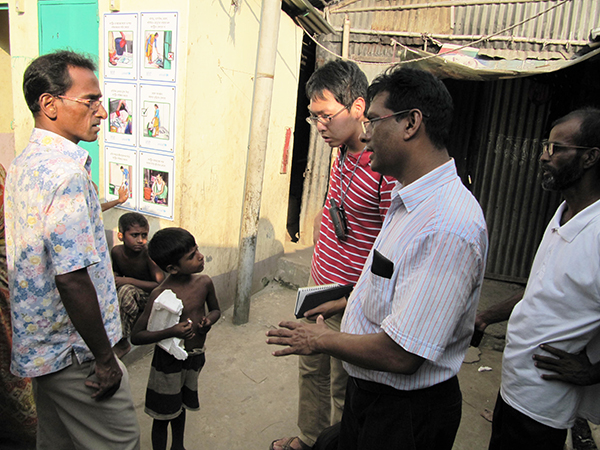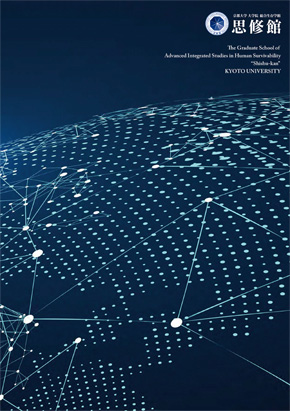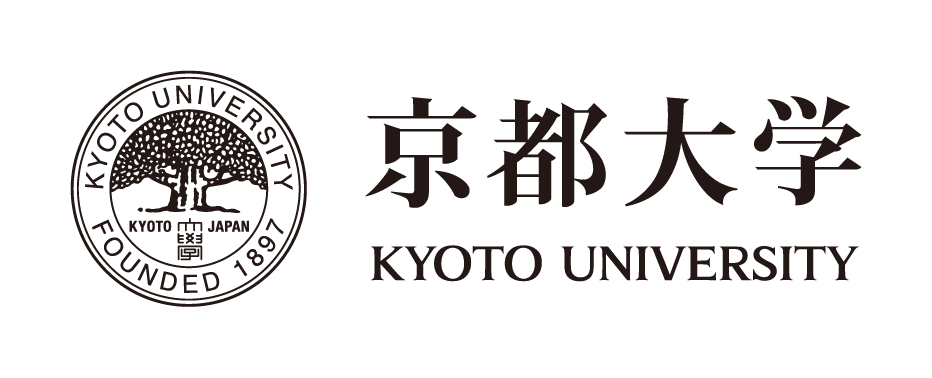Overview
Last update: 2022-04-08
MAIN FEATURES
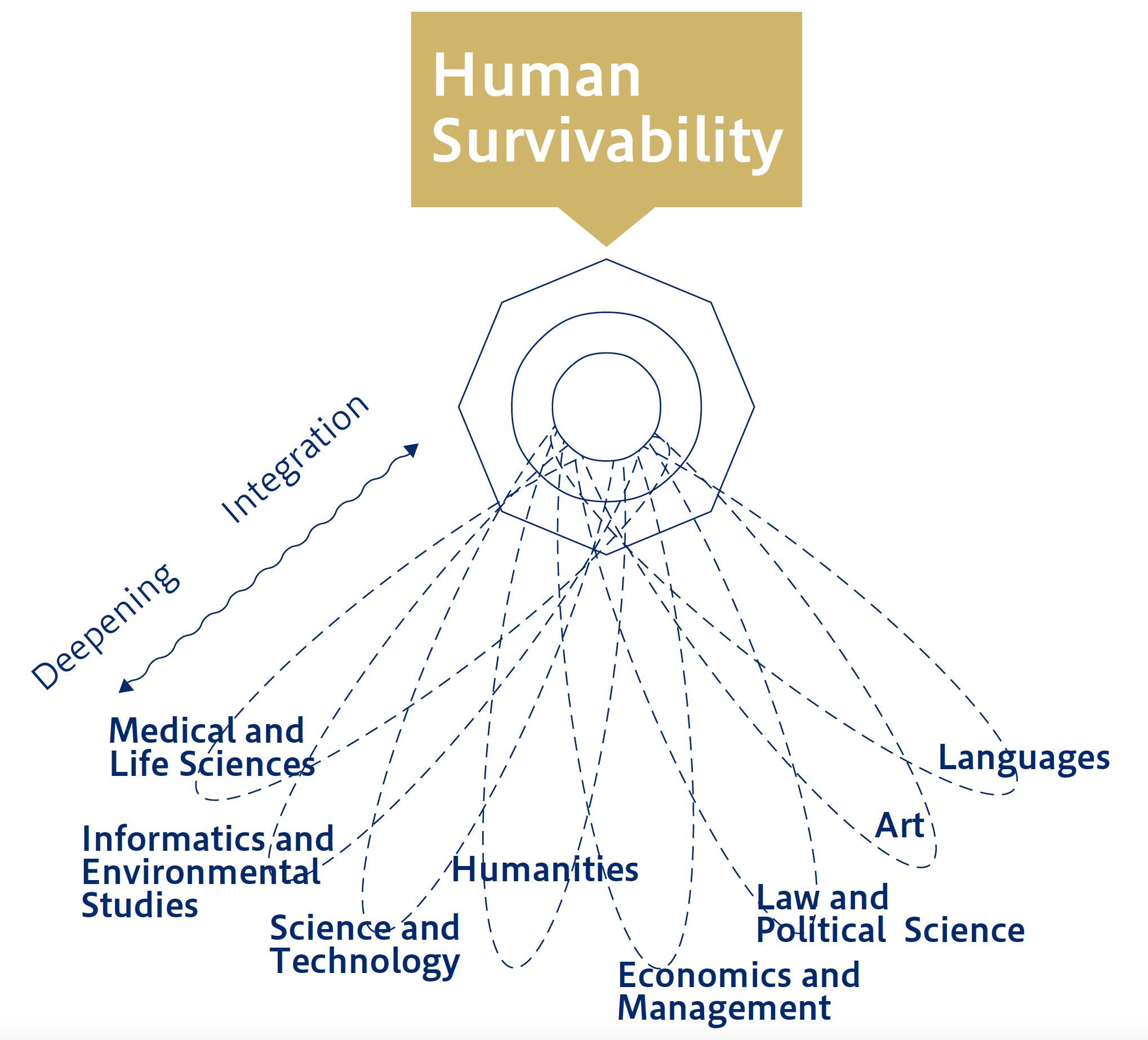
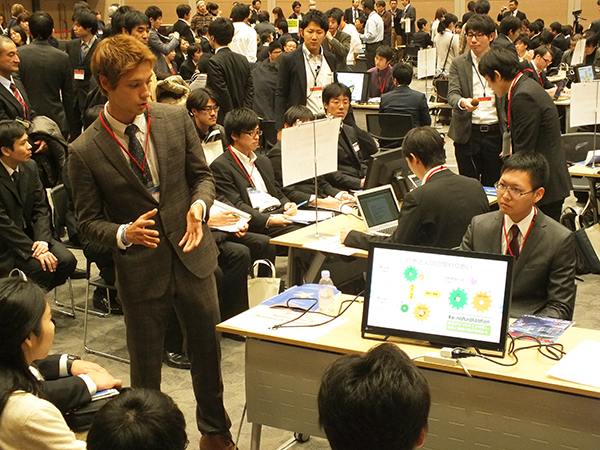
The Graduate School of Advanced Integrated Studies in Human Survivability (GSAIS) was launched in Kyoto University in the 2013 academic year. This is a 5-year Graduate School aiming to produce top-level global leaders who can resolve the complex and diversified social issues with a strong sense of responsibility, humanity and morality. Advanced Integrated Studies in Human Survivability is an integrated field of scholarship that studies the means to structuralize and communalize knowledge for human survivability. Through the studies at the GSAIS, students are expected to assume responsibility as global leaders and develop a high sense of mission and perspectives as well as highly developed management skills. The educational program at the GSAIS was originality initiated as the Leading Graduate School Program, which was supported by the Japanese Ministry of Education, Culture, Sports, Science and Technology (MEXT). The education at the GSAIS is based on the traditional philosophy that learning occurs through hearing, thinking and practicing (a Buddhist term “mon-shi-shu” on which the program’s name is based). Students are expected to enhance their ability to adopt an all-encompassing perspective across various fields by building a broad spectrum of professional learning, ranging from the humanities through sciences and based upon the body of academic knowledge acquired during undergraduate studies. The educational and research training is globally focused and is given mainly in English. The GSAIS curricula are tailor-made and are constructed depending on the academic background and future goals of each student. Students also attend the debates that involve external lecturers from industry and government (“Industry-Government Cooperation Special Seminar “Jukugi“).
Internships, fieldwork, and project-based research are important course requirements. Students undergo more than a half-year overseas internship with an international organization or overseas office of a Japanese organization. The internship program has become possible thanks to the kind collaboration of such organizations as UNESCO, OECD, JICA, and leading international companies and universities. The GSAIS accepts 20 students per year, keeping the student-to-instructor ratio very low. They live in a residential college on campus, which enhances the environment for learning by facilitating student interaction across disciplines, and faculty members are available onsite to provide necessary support and mentoring. Further, eligible students receive a scholarship from the University as well as a financial support for their research activities.
Developing Solid Expertise
Students must possess the ability as independent thinkers and be able to depend on themselves to develop as global leaders. True global leaders have a high level of academic expertise and produce research findings that will be highly regarded to wherever it may be of concern. To facilitate the process of development in becoming such a leader, the GSAIS has created a program where: -Students follow a highly intensive two-year education program in their area of expertise during their first two years. -Students conduct solid research in their chosen field of research with multiple supervisors mentoring them throughout the process -Students develop their planning abilities, creativity, and confidence through their special research achievements.
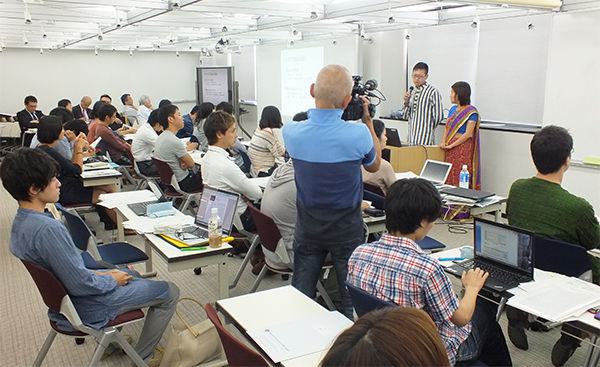
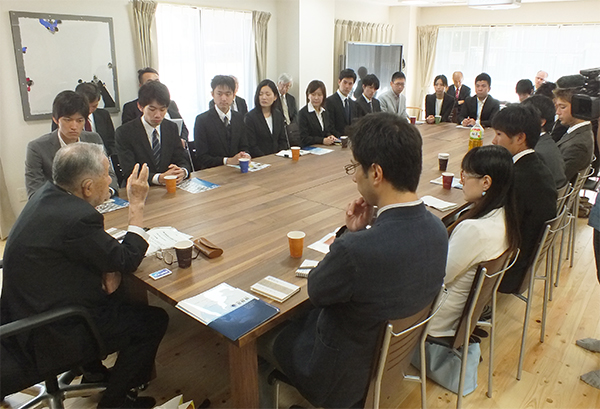
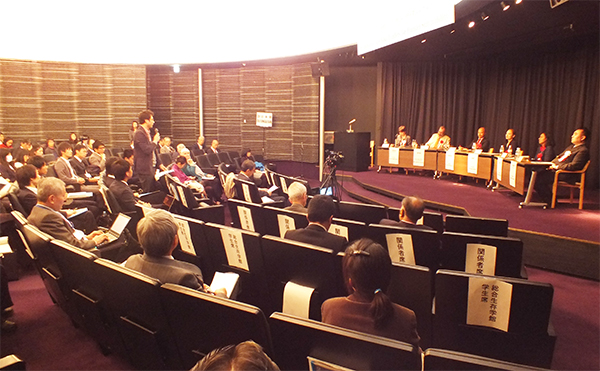
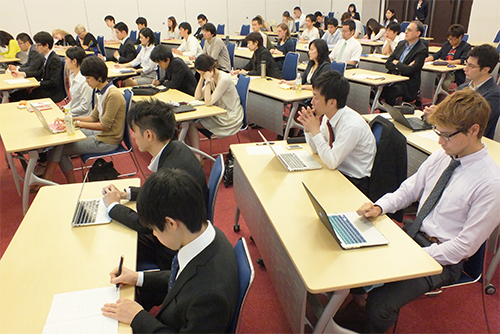
Integrated Academic Foundation Lectures
At the GSAIS students are trained in reverse order in comparison to conventional education programs. Students enter their field of research in real society during their first two years before acquiring more academic knowledge. This contra-system makes it easier for students to develop flexible and creative thinking patterns. The type of thinking that helps them to cultivate the type of sensitivity required for developing solutions to global problems, which are inextricably complex and intertwined. Students develop a critical mindset acquired through practical training and service learning program in their first year. They then select a research theme followed by designing a curriculum that supports this while keeping in mind their personal interests and future ambitions. While supported by the multiple supervisor system, students will follow integrated academic foundation lectures that are tailor-made to individual needs. -Each subject is taught didactically in accordance to each student`s area of expertise, background, curriculum and future ambitions. The GSAIS`s full-time faculty members and guest lecturers work as a team to design and implement the necessary curricula. -Each lecture is filmed and stored in a library so that future students of the program and those enrolled in other training courses may access them. -Lectures are given in English for many of the fields to assist students in operating and using their acquired knowledge internationally. -Lectures are held in the 8 fields of: Law and Politics, Medical and Life Science, Humanities and Philosophy, Science and Engineering, Art, Linguistics, Economics and Management, Informatics and Environmental Studies.
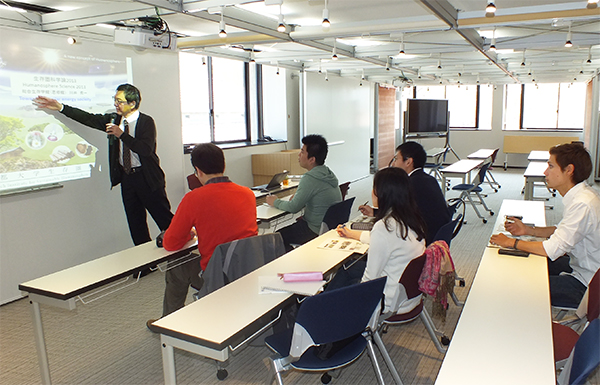
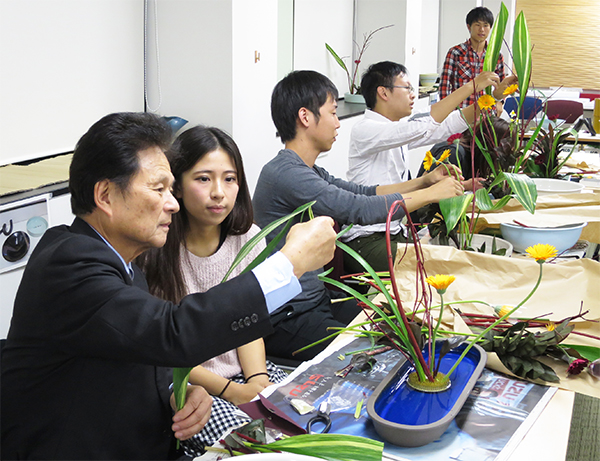
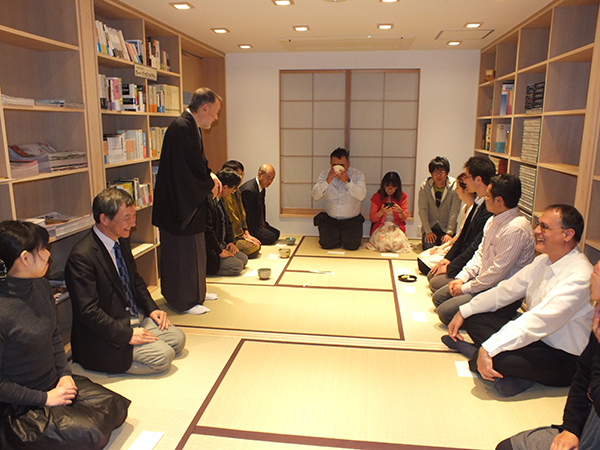
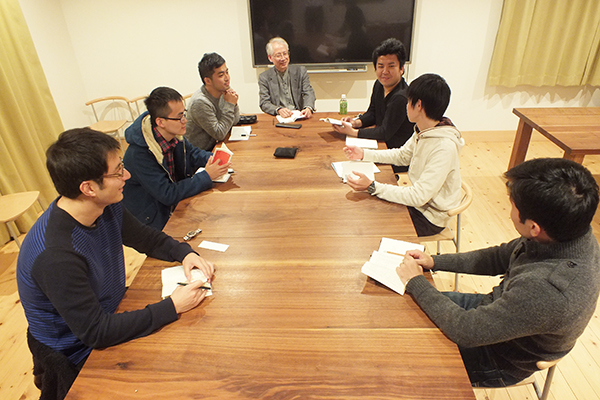
TAILOR-MADE CURRICULUM
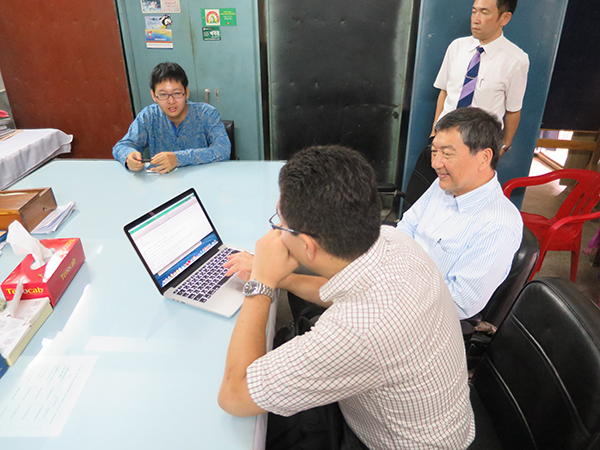
At the GSAIS, each student tailors their curriculum according to their own academic background, interests and future goals. Each student studies with a specific purpose in mind. Students receive advice and mentoring from two or more highly experienced professors, who help to systematically plan their program of study and academic research program. In addition to the customized curriculum, students can also take classes in major subjects offered by other graduate schools within Kyoto University
SELECTION OF 20 TALENTED STUDENTS
Each year GSAIS accepts 20 talented students to follow the Advanced Integrated Studies in Human Survivability program, where the student-to-instructor ratio is kept very low. The students live in a residential college on campus, thus enhancing the environment for learning and facilitating student interaction across disciplines. Faculty members are available onsite to provide necessary support and mentoring. Further, eligible students receive a scholarship from the university as well as financial support for their research activities.
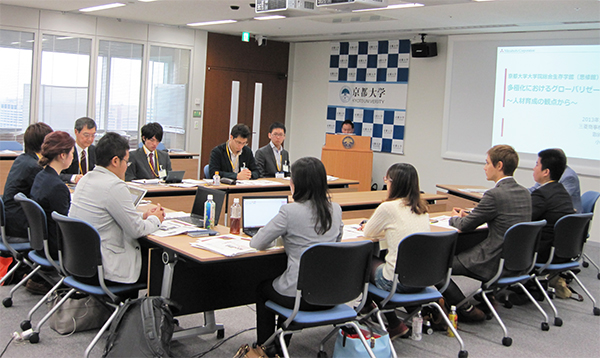
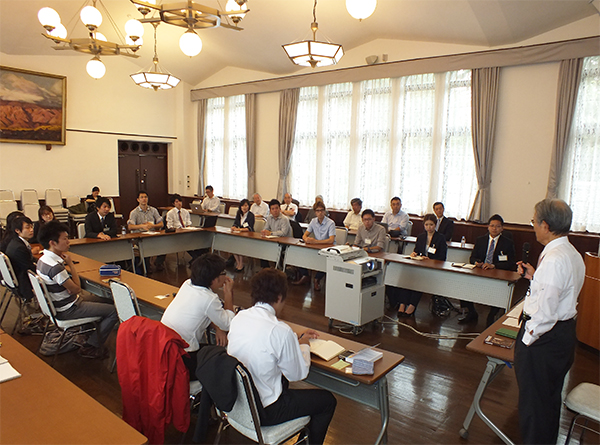
STRONG EMPHASIS ON RESEARCH
